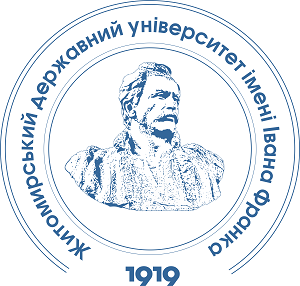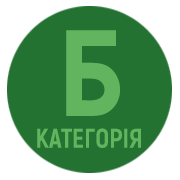OBJECTS OF THE NATURAL PRESERVATION FUND: ANALYSIS OF THE CONSEQUENCES OF THE UKRAINIAN-RUSSIAN WAR
DOI:
https://doi.org/10.32782/naturaljournal.5.2023.14Keywords:
nature reserve fund of Ukraine, military aggression, destruction of protected background, land resources, biosphere, man-made pollution, damage to natural landscapesAbstract
The article is a comprehensive study aimed at the study and assessment of the impact of military aggression on nature reserves of Ukraine. The Ukrainian-Russian conflict led not only to human casualties and the destruction of cities and villages, but also to unprecedented consequences for the country’s natural reserves. This especially applies to the objects of the nature reserve fund, which are important for the preservation of the unique natural heritage of Ukraine. Territories that used to serve as sanctuaries for various species of plants and animals have now become the site of military operations. Destroyed forests, polluted reservoirs, changed migration routes of animals – these are just some of the many consequences of war for nature. However, the war also showed how important the role of the scientific community is in the analysis and restoration of natural resources. Researchers and ecologists tried to determine the extent of the damage, as well as to develop strategies for their further restoration. The purpose of the article is to study the impact of the Ukrainian-Russian conflict on the ecological state and functioning of nature conservation areas of Ukraine. The main attention is paid to the identification of key problem areas and the formulation of recommendations for their restoration and further activities in order to ensure ecological balance. Exploratory analysis was used to collect and generalize data on the ecological state of nature-reserved objects before and after military actions. The main emphasis will be on the study of areas, biological diversity, stability of ecosystems, as well as the number and variety of flora and fauna. A geo-information approach was used to assess modern geo-information systems for detailed visual analysis and demonstration of the dynamics of changes in nature reserves during the conflict. Conducted Ecological monitoring, as a process of systematic monitoring and analysis of changes in natural ecosystems, in particular, paying attention to biological diversity and the quality of ecosystem services provided by these territories. It has been proven that the preservation and restoration of the objects of the nature reserve fund is not only a matter of environmental security, but also of the country’s national security. Nature reserves can become symbols of recovery, peace and coexistence of man and nature after years of conflict.
References
Ангурець О., Хазан П., Колесникова К., Кущ М., Чернохова М., Гавранек М. Наслідки для довкілля війни росії проти України. 2023 [Електронний ресурс]. URL: https://cleanair.org.ua/wp-content/uploads/2023/03/cleanair.org.ua-war-damages-ua-version-04-low-res.pdf (дата звернення 20.09.23).
Брайлян Є. 20% природно-заповідного фонду України постраждало від війни. [Електронний ресурс]. URL: https://armyinform.com.ua/2023/04/17/20-pryrodno-zapovidnogo-fonduukrayiny-postrazhdalo-vid-vijny/ (дата звернення 20.09.23).
Глухонець А.О., Морозова Т.В., Морозов А.В., Кобзиста О.П., Самойленко І.В., Стецюк Л.М. Використання ГІС технологій для модернізації систем моніторингу об’єктів природно-заповідного фонду України. Вісник Національного університету водного господарства та природокористування. 2022. № 2(98). С. 40-54.
Корчовий Р. Спеціальний адміністративно-територіальній режим територій природно-заповідного фонду: чинники самоврядного механізму управління. Теоретичні та прикладні питання державотворення. 2023. Вип. 28. С. 67–82. https://doi. org/10.35432/tisb282022285247
Македон В.В., Байлова О.О. Планування і організація впровадження цифрових технологій в діяльність промислових підприємств. Науковий вісник Херсонського державного університету. Серія «Економічні науки». 2023. Випуск 47. C. 16–26. https://doi. org/10.32999/ksu2307-8030/2023-47-3.
Матеріали Робочої групи з питань природно-заповідного фонду. Випуск 1. / Ред.: Ю.Ю. Овчинникова. Київ : Комітет Верховної Ради України з питань екологічної політики та природокористування. 2021. 132 с.
Мокрий В. Вплив російської агресії на природоохоронні території України [Електронний ресурс]. URL: https://svitua.org/2023/01/17/vplyv-rosijskoyi-agresiyi-na-pryrodoohoronniterytoriyi-ukrayiny/ (дата звернення 20.09.23)
Ніколайчук Т. Факторинг у сфері природно-заповідного фонду України, як інструмент розвитку соціально відповідального бізнесу. Innovation and Sustainability. 2022. № (1). С. 72–83. https://doi.org/10.31649/ins.2022.1.72.83.
Омельчук О., Софія С. Природа та війна: як військове вторгнення Росії впливає на довкілля України [Електронний ресурс]. URL: https://ecoaction.org.ua/pryroda-ta-vijna.html (дата звернення 20.09.23).
Офіційний сайт Природно-заповідного фонду Міністерства захисту довкілля і природних ресурсів України [Електронний ресурс]. URL: https://wownature.in.ua. (дата звернення 20.09.23).
Природно-заповідний фонд України в умовах війни. 2022 [Електронний ресурс]. URL: https://nenc.gov.ua/?p=42530 (дата звернення 20.09.23).
Присяжнюк П. Розширення природно-заповідного фонду Херсонщини: проблеми та перспективи. Таврійський науковий вісник. Серія: Економіка. 2020. №(4). С. 148–154. https://doi.org/10.32851/2708-0366/2020.4.18.
Роман Л.Ю. Аналіз екологічних загроз об’єктів ПЗФ України у воєнний період. Екологічні науки. 2023. № 3(42). С. 84–88. https://doi.org/10.32846/2306-9716/2022.eco.3-42.13
Смирнова С.М., Смирнов В.М., Островерха В.О. Наукові засади управління розвитком природно-заповідних територій. Агросвіт. 2020. № 2. С. 77–83.
Толкаченко О.В. Визначення понять «біосферний заповідник» і «біосферний резерват» за законодавством України. Правова держава. 2022. №45. С. 41–48. https://doi.org/10.18524/2411-2054.2022.45.254365.
Andryeyeva N., Khumarova N., Nikolaychuk T. Aligning the social, environmental, and economic interests of “green growth” of the Ukrainian nature reserve fund objects. Environmental Economics. 2019. № 10(1). P. 93–104. https://doi. org/10.21511/ee.10(1).2019.07.
Homanyuk M., Khodosovtsev O., Moysiyenko I., Ponomaryova O., Zharonkin V. Ukrainian facilities of the nature reserve fund in the conditions of war and Russian occupation. Економічна та соціальна географія. 2023. № 89. c. 31–41. https://doi.org/10.17721/2413-7154/2023.89.31-41.
Ishchuk L.P., Kurka S.S., Ishchuk G.P. From the experience of training specialists of forestry and landscape gardening. Professional competency of modern specialist: means of formation, development and improvement: monograph. Warsaw: BMT Eridia Sp .z o.o., 2018. Р. 285–302.
Kolodezhna V. Vasyliuk O. Spinova Yu. Simonov E. Ukraine War Environmental Consequences. Journal UWEC. 2022. issue № 6. https://doi. org/10.13140/RG.2.2.35785.42084.
Kucher A., Honcharova A., Kucher L., Bieloborodova M., Bondarenko L. Impact of War on the Natural Preserve Fund: Challenges for the Development of Ecological Tourism and Environmental Protection. Journal of Environmental Management and Tourism. 2023. 14. Р. 2414. https://doi.org10.14505/jemt.v14.5(69).23.
Makedon V., Mykhailenko O., Dzyad O. Modification of Value Management of International Corporate Structures in the Digital Economy. European Journal of Management Issues. 2023. 31(1). pp. 50–62. https://doi.org/10.15421/192305.
Scholtens B. Why Finance Should Care about Ecology. Trends in Ecology and Evolution. 2017. Vol. 32. https://doi.org/10.1016/j.tree.2017.03.013.
Shvedun V., et al. Evaluation of environmental security of Ukraine during the russian invasion: state, challenges, prospects. Journal of Environmental Management and Tourism. 2023. № 14(3). рр. 787–798. https://doi.org/10.14505/jemt.14.3(67).18.
Tsvyakh O., Openko І. Main directions of urban land optimization in Kiev agglomeration. Baltic Surveying International Scientific Journal. 2017. Vol. 61. рр. 60–65.
Vasyliuk O. Impact of the war on the objects of the nature reserve fund. Ukrainian Nature Conservation Group. [Electronic resource] URL: http://surl.li/mnmgk (access date 20.09.23).
Wang C., Dong G. Research on Green Financial Ecology Construction Based on Low Carbon Economy. Ekoloji. 2019. № 107. P. 3635-3641. [Electronic resource] URL: http://www.ekolojidergisi.com/article/research-on-green-financial-ecology-construction-based-on-low-carboneconomy-6006. (access date 20.09.23).
Zamula І., Shavurska O. Strategic directions for restoration of environmental security of the Polissia region in the post-war period. Journal of Innovations and Sustainability. 2023. № 7(1). рр. 02. https://doi.org/10.51599/is.2023.07.01.02.





